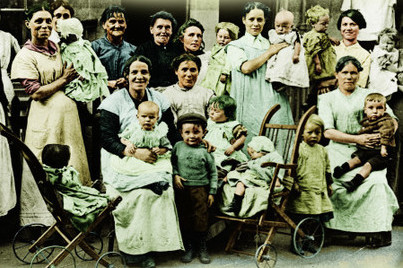- Screen Colours:
- Normal
- Black & Yellow

Struggle and Suffrage in Norwich
Struggle and Suffrage in Norwich – Women’s Lives and the Struggle for Equality
A talk by Gill Blanchard
Following hot on the heels of our most successful Annual Open Day ever, we were delighted to welcome (over Zoom) professional Genealogist and Author, Gill Blanchard, to the Fromus Centre, Saxmundham, in October.
The content of Gill’s talk was drawn largely from a book of the same title, published by Pen and Sword in 2020. Most significantly, her presentation did not solely focus on the suffrage movement and the important role played by women in World War One, but extended to their significant work in education, nursing, housing, business and politics.
Perhaps most surprising was to learn that the struggle for equality is not a recent phenomenon, but dates back at least to the time of the English Civil War, when a group of activists known as the Levellers stood for popular sovereignty, extended suffrage, equality before the law and religious tolerance. We also discovered that some hard gained, limited voting rights, granted to women in the eighteenth century were subsequently removed by the Great Reform Act of 1832, which expressly excluded women from voting.
Nonetheless, through their dogged persistence, we were treated to some eye-opening biopics of some very well-known and some lesser-known women. These included, inter alia:
Amelia Opie (1769-1853): a writer, dramatist and political activist, whose political views were shaped by the French Revolution
Harriet Martineau (1820-1876): a political economist and radical abolitionist who supported the theories of Charles Darwin.
Phillipa Flowerday (1846 – 1930): the first industrial nurse in England, who was employed by the Colman’s Mustard factory in Norwich.
Edith Cavell (1865-1915): who trained as a nurse in England before being appointed director of a nursing school in Belgium. She was later executed by the Germans in October 1915, having been tried for the ‘crime’ of aiding the escape of British, Belgian and French soldiers.
Elsewhere, we heard of the blacksmith Elizabeth Sabberton; the pioneering Mary Ann Birkbeck, who was instrumental in establishing domestic science classes in schools; Margaret Pillow, appointed as the first female sanitary inspector for the Health Board in 1893. There was even a fire brigade, Chamberlins of Market Place, Norwich, run entirely by women.
Gill’s talk was warmly received by the hybrid audience and there was a lively Q & A session during which a number of attendees made some very positive comments.
Chris Broom